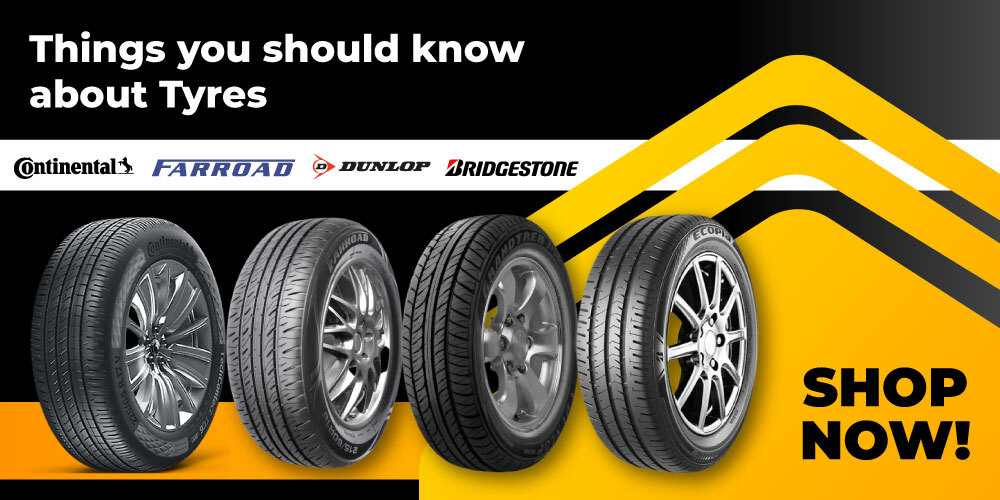
Your vehicle’s tyres are responsible for both your enjoyment of driving and your safety on the road. We help you better comprehend them.
Tyres are the point of contact between your vehicle and the road, and while most people recognise the significance they play in grip, many underestimate it and overlook the other aspects they have like ride quality, tyre noise and braking.
Because tyres play such an important role in your daily driving, here's a guide to help you understand the types of tyres, which ones are ideal for you, and how to maintain them properly. Let's start with selecting the appropriate sort of tyre. The criteria for differentiating the types of available tyres are listed below.
To get the best tyres, checkout this link - https://www.evertyres.com.au/
Classification of Tyres
Construction
While tubeless tyres are now standard on most vehicles, tube tyres are still available on some. Most manufacturers have moved on to tubeless tyres because they are more reliable, safer, discharge less air, last longer, and are less likely to puncture. So, if you're looking for new tyres, tubeless is the way to go, provided the rim can handle it.
Compound
Tyre manufacturers utilise various compound mixtures of natural and synthetic rubber, silica, and carbon black to improve performance, efficiency, and longevity. A tougher compound will often last longer but provide less road grip and performance. Thus, while purchasing a tyre, read the description and purchase a set based on your priorities.
Weather
Given our climate, we normally use all-weather tyres, although in extremely cold areas, winter tyres are preferable. These tyres feature a higher natural rubber composition, which keeps them supple in cold climates. The tread design will also aid in the dispersal of snow. However, for deep snow, it is preferable to use snow chains or special snow tyres with integrated metal studs.
To select your best suited tyres, have a look here - https://www.evertyres.com.au/inventory
Using the Tread Pattern
Tread Symmetry
These tyres have the same pattern on the inside and outside of the contact surface, have lower rolling resistance which promotes efficiency, and may be fitted without regard for the direction of travel.
Asymmetric tread pattern
The tread patterns on the inner and exterior of the tyre differ. The inside edge includes water-dissipating treads, while the outside edge is engineered for increased cornering grip. They can be installed on either side of the car, but only on the correct side.
The tread is unidirectional
These tyres have a 'V'-shaped tread pattern that aids in wet traction. They are also usually more silent when jogging. They must always be installed in the proper direction of travel.
Find most exciting budget-friendly products here - https://www.evertyres.com.au/offer
Depending on the Terrain
Highway
For cars that are primarily driven on paved roads and are rarely taken off-road. These tyres are intended to provide excellent road grip in both dry and wet conditions. Some are built for increased performance or fuel efficiency, depending on the type.
All-terrain
These tyres strike a compromise between on-road and off-road performance. They have larger tread blocks, which enables for better water dissipation and grip on off-road surfaces. They can also be used on the road, however they have less grip than highway tyres.
Mud terrain
These tyres are specifically built for off-road use in conditions such as mud, slush, and rocks. They have large tread blocks that provide traction on a wide range of surfaces and terrains. They are mostly used for off-roading and should not be driven on public roads.
Most sturdy and economic packages available at a huge discount. Check it out -
https://www.evertyres.com.au/packages
Tips for Keeping Your Tyres Happy
1. Inspect Tyre Pressure
It is suggested that you have your tyre pressures checked every two weeks, including the spare. This is significant because poor inflation can cause uneven wear on the tyre surface. Furthermore, incorrectly inflated tyres are more likely to explode on roads. Make sure you have your tyres checked when they are cold. The recommended tyre pressure is normally listed on the driver's side door sill as well as in the owner's handbook.
2. Examining the tread wear
Tread-wear indicators are marked by a little arrow on the tyre's outer wall. If the outermost layer of the tyre contacts the tread wear indicator, it's time for a replacement. Any tyre that has less than 2 mm of tread remaining should be replaced as soon as possible.
Don't get confused to get your car's best fit, contact us now.


